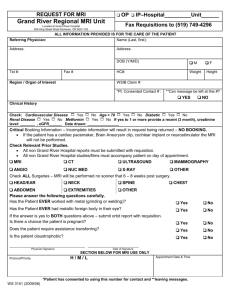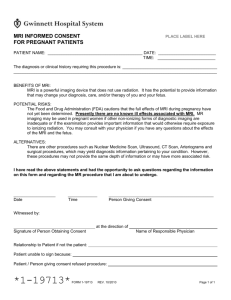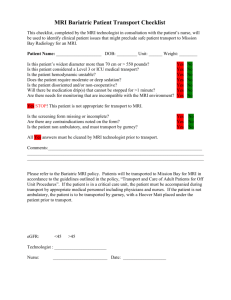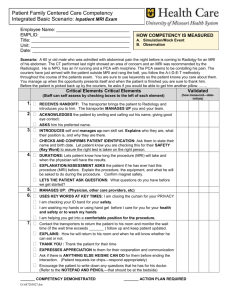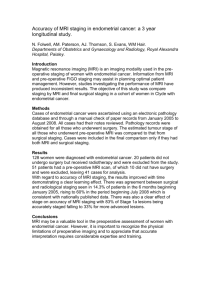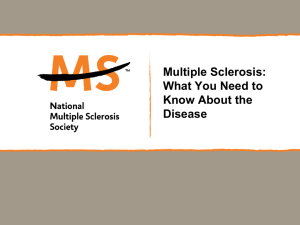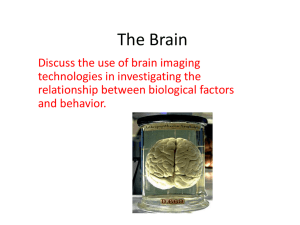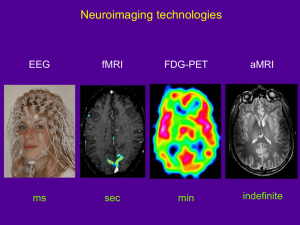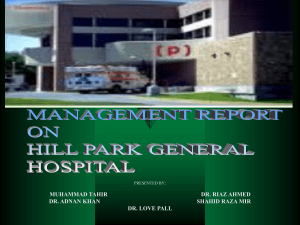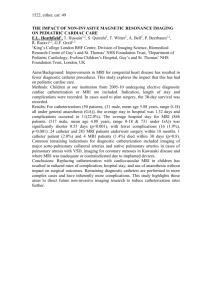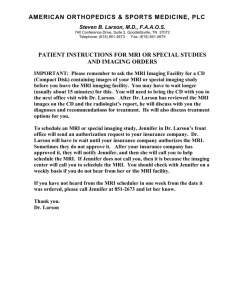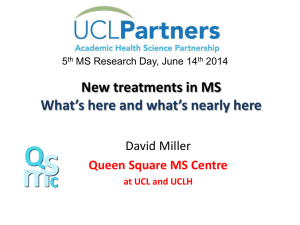The magnetic resonance imaging (MRI) diagnosis criteria for
advertisement
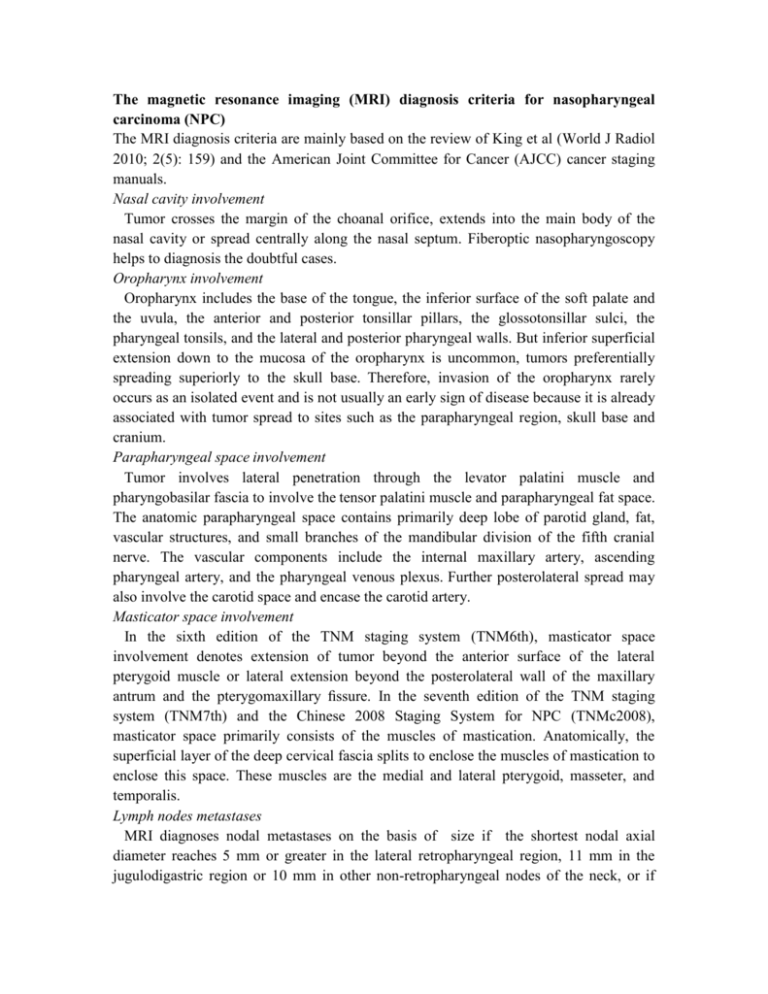
The magnetic resonance imaging (MRI) diagnosis criteria for nasopharyngeal carcinoma (NPC) The MRI diagnosis criteria are mainly based on the review of King et al (World J Radiol 2010; 2(5): 159) and the American Joint Committee for Cancer (AJCC) cancer staging manuals. Nasal cavity involvement Tumor crosses the margin of the choanal orifice, extends into the main body of the nasal cavity or spread centrally along the nasal septum. Fiberoptic nasopharyngoscopy helps to diagnosis the doubtful cases. Oropharynx involvement Oropharynx includes the base of the tongue, the inferior surface of the soft palate and the uvula, the anterior and posterior tonsillar pillars, the glossotonsillar sulci, the pharyngeal tonsils, and the lateral and posterior pharyngeal walls. But inferior superficial extension down to the mucosa of the oropharynx is uncommon, tumors preferentially spreading superiorly to the skull base. Therefore, invasion of the oropharynx rarely occurs as an isolated event and is not usually an early sign of disease because it is already associated with tumor spread to sites such as the parapharyngeal region, skull base and cranium. Parapharyngeal space involvement Tumor involves lateral penetration through the levator palatini muscle and pharyngobasilar fascia to involve the tensor palatini muscle and parapharyngeal fat space. The anatomic parapharyngeal space contains primarily deep lobe of parotid gland, fat, vascular structures, and small branches of the mandibular division of the fifth cranial nerve. The vascular components include the internal maxillary artery, ascending pharyngeal artery, and the pharyngeal venous plexus. Further posterolateral spread may also involve the carotid space and encase the carotid artery. Masticator space involvement In the sixth edition of the TNM staging system (TNM6th), masticator space involvement denotes extension of tumor beyond the anterior surface of the lateral pterygoid muscle or lateral extension beyond the posterolateral wall of the maxillary antrum and the pterygomaxillary fissure. In the seventh edition of the TNM staging system (TNM7th) and the Chinese 2008 Staging System for NPC (TNMc2008), masticator space primarily consists of the muscles of mastication. Anatomically, the superficial layer of the deep cervical fascia splits to enclose the muscles of mastication to enclose this space. These muscles are the medial and lateral pterygoid, masseter, and temporalis. Lymph nodes metastases MRI diagnoses nodal metastases on the basis of size if the shortest nodal axial diameter reaches 5 mm or greater in the lateral retropharyngeal region, 11 mm in the jugulodigastric region or 10 mm in other non-retropharyngeal nodes of the neck, or if there are a group of three or more nodes which are borderline in size. However, it should be noted that normal nodes become progressively smaller moving caudally in the neck and therefore a size of 5-7 mm is sometimes used as a cutoff in the lower neck. NPC nodes are often necrotic and show extracapsular spread and these signs are used by MRI to identify metastatic nodes irrespective of size. The criteria of treatment failure Treatment failure was defined as locoregional relapse, distant metastasis or death from any cause, whichever was first. Locoregional relapses included local relapses, regional relapses or both. All local relapses were diagnosed with fibreoptic endoscopy and biopsy, MRI scan, or both, of the nasopharynx and the skull base showing progressive bone erosion and soft tissue swelling. Regional relapses were diagnosed by clinical examination of the neck and, in doubtful cases, by fine needle aspiration or an MRI scan of the neck. Chest radiography, abdominal sonography, Technetium-99m-methylene diphosphonate (Tc-99-MDP) whole-body bone scan and/or 18F-fluorodeoxyglucose positron emission tomography and computed tomography (PET/CT) were used to screen distant metastases. If metastases were suggested, then additional computed tomography (CT), MRI, biopsy, or aspiration at the site in question was underwent to further confirm them.
